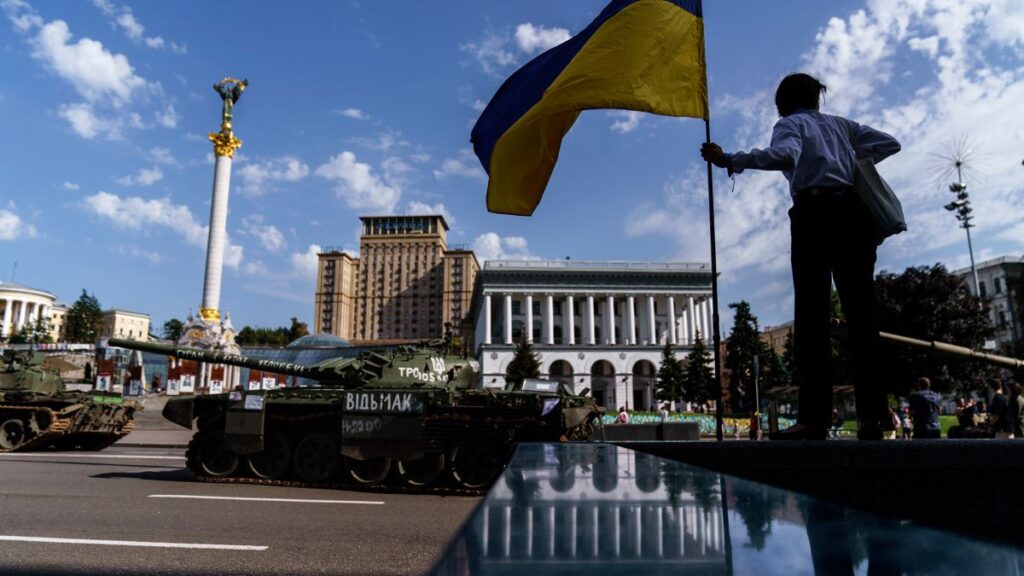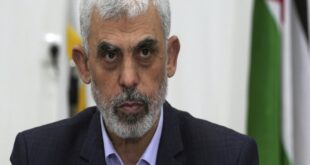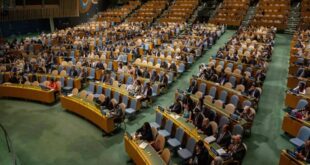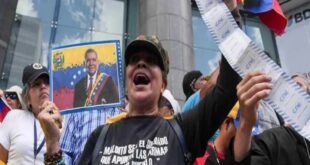
The six-month anniversary of Russia’s war today coincides with the day Ukraine decided to break from the Soviet Union.
August 24 is a historic day for Ukraine, celebrated as Independence Day in recognition of the 1991 vote by the country’s still-Soviet legislature declaring independence from Moscow.
Today, however, it marks not just that anniversary, but the global struggle for national sovereignty: The date also coincides with the completion of six months of Russian President Vladimir Putin’s all-out-attack on Ukraine. It is a day that should matter to the whole world.
Back in 1991, competing visions for a post-Communist era in Moscow held up Ukraine’s drive for separation from Russia. Ukrainians would re-assert their desire for independence that December, with 92.3 percent of voters backing the legislature’s declaration, including a majority of residents of Crimea and the Donbas – regions that Putin today falsely insists are more Russian than Ukrainian.
Ukraine would achieve independence on December 26, when Mikhail Gorbachev formally dissolved the Soviet Union. If August 24, 1991, represented a key step in Kyiv’s long and drawn-out fight to secure its sovereignty from Moscow, August 24, 2022, marks an equally pivotal moment. The West’s role – like in 1991 – is critical as Ukraine tries to shape its future.
Although Russia’s then-president Boris Yeltsin pushed Gorbachev to break up the USSR, Yeltsin had not given up hopes of retaining Ukraine in some form of successor union, as detailed in Collapse, Vladislav Zubok’s recently-published critical history of the end of the Soviet Union. In the aftermath of the collapse of communism, Russian nationalist politicians pursued similar aspirations. Russian territorial claims were formally settled in 1994, via the Budapest Memorandum on Security Assurances that saw Kyiv formally renounce its nuclear weapons. In exchange, Russia promised to refrain from threatening to use military force or economic coercion against Ukraine.
The last eight years have made a mockery of the document, to which the United States and the United Kingdom were guarantors. They failed to uphold the pledges to Ukraine after Russia’s 2014 invasion and annexation of Crimea, while Putin justified it by arguing that the Euromaidan Revolution at the beginning of that year had created “a new state” with which Russia had not signed any treaties.
This year, Putin has extended his war, ordering attacks north of Crimea, across the Donbas, and in Kharkiv, Sumy, Zhytomyr, and Chernihiv as well. Many of these attacks were launched from Belarus, which has seen its sovereignty deeply compromised, with President Alexander Lukashenko more beholden than ever to Putin after the regime in Minsk cracked down on pro-democracy protests in 2020.
Although Putin’s invasion army has been forced into a humiliating retreat from Zhytomyr, Kyiv, Chernihiv and Sumy, Russian troops remain in Belarus today. Ukrainian officials continue to warn that Russian forces could launch a new ground assault via Belarus, and Putin still uses Belarusian land to launch missiles and air raids across Ukraine.
Many Ukrainians have been unable to celebrate Independence Day for the past eight years, with Russia not only annexing Crimea but effectively administering half of Luhansk and Donetsk after sending its forces into those territories in 2014 as well. Fewer will celebrate this year. Celebrations have been suspended in the country’s two largest cities, Kyiv and Kharkiv, amongst others, for fear of Russian attacks.
Yet more cannot commemorate the occasion because Russia has expanded its occupation significantly since February, taking all but a sliver of Luhansk, nearly all of the region of Kherson, half of Zaporizhzhia and portions of northern and eastern Kharkiv. Russia also maintains a foothold in Mykolaiv and by mid-May had seized all of the coastal region of Donetsk, following the siege of Mariupol’s Azovstal.
Over the last month, the lines of control have hardly changed. Russian forces are threatening to take the key Donetsk suburb of Avdiivka and have pressed assaults on a line of Ukrainian cities – Siversk, Soledar and Bakhmut – in northern Donetsk. Ukrainian forces have for weeks been planning an offensive of their own in Mykolaiv and Kherson seeking to retake territory on the northern bank of the Dnieper River before winter, though it remains to be seen whether they can be successful. Russia has itself counterattacked in recent days near the village of Blahodatne just 35km (21.7 miles) away from Mykolaiv.
Nevertheless, six months after Putin vastly escalated the war, his forces appear stuck in a quagmire. He might have expanded Russia’s occupation and all but erased Belarus’ sovereignty in the process, but Ukraine has held on and continues to fight to repel the Kremlin’s military.
That is a reason to celebrate – but with caution. On August 24 this year, the opening stanza of Ukraine’s national anthem has never rung more true:
Ukraine’s freedom has not yet perished, nor has her glory,
Upon us, fellow Ukrainians, fate shall smile once more.
Our enemies will vanish like dew in the sun,
And we too shall rule, brothers, in a free land of our own.
Yet while the war might not have gone the way Putin had hoped, that won’t derail his long-term ambitions. While Ukrainians remain steadfast in their resolve to continue the fight, questions are growing about the West’s continued commitment to the economic war against Moscow: Countries that have imposed sanctions are once again increasing exports to Russia. Some sanctions have been relaxed slightly and Russia is using its own economic weapons – particularly natural gas – to attempt to break Western resolve.
The Kremlin remembers the West’s abandonment of its Budapest Memorandum guarantees and is counting on history repeating itself. That’s why, this August 24, Ukrainian sovereignty should be celebrated not just by Ukrainians, but all those who value freedom and independence. If the international community lowers its commitment to Ukraine and fails to uphold the universal values that Ukrainians are fighting for, the next anniversary may prove far bleaker.
By Maximilian Hess – Fellow at the Foreign Policy Research Institute / Aljazeera




 World Opinions Débats De Société, Questions, Opinions et Tribunes.. La Voix Des Sans-Voix | Alternative Média
World Opinions Débats De Société, Questions, Opinions et Tribunes.. La Voix Des Sans-Voix | Alternative Média





